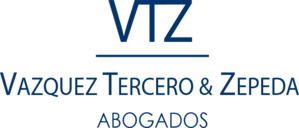- within International Law topic(s)
- in United States
- within International Law topic(s)
- in United States
- within Employment and HR, Real Estate and Construction and Corporate/Commercial Law topic(s)
- with readers working within the Automotive industries
Foreign manufacturers exporting to Mexico under free trade agreements (FTAs) often face origin verification procedures conducted by Mexico's Tax Administration Service (SAT). These procedures can be complex and challenging, especially for companies unfamiliar with Mexican Authorities and customs regulations. This guide provides essential information to help foreign producers navigate SAT origin verifications successfully.
What is an Origin Verification and Why Does it Matter for Foreign Exporters?
What exactly is an origin verification procedure conducted by Mexican authorities?
An origin verification is an administrative procedure through which Mexico's Tax SAT evaluates whether goods imported under an FTA genuinely comply with the origin rules established in that agreement. The procedure aims to confirm that products receiving preferential tariff treatment are truly originating of the country or the free trade zone, preventing triangulation of goods from third countries attempting to improperly benefit from tariff advantages.
Why should foreign producers take these verifications seriously?
For foreign producers, these verifications are critical because:
- Your response directly impacts your Mexican customers' ability to maintain preferential tariff benefits.
- Failing to respond properly or on time can result in automatic denial of preferential treatment regarding the verified goods.
- A negative determination can damage your commercial relationships with Mexican importers.
- Your company's reputation as a reliable supplier may be affected.
- Future exports to Mexico could face increased scrutiny and, if failure is recurrent, then the origin of your goods may be rejected.
Modern FTAs like USMCA and CPTPP have established stricter rules regarding origin verification procedures. If you as an exporter fail to respond within the established timeframes, the consequences for your Mexican importers can be severe, including payment of omitted duties, fines, and surcharges.
How Does the SAT Origin Verification Process Work?
What methods does SAT use to verify origin, and which is most common?
The SAT can verify origin through:
- Questionnaires sent to the foreign producer/exporter.
- On-site visits to the foreign producer's facilities.
Currently, due to Mexico's government austerity measures, SAT primarily conducts verifications through questionnaires rather than on-site visits. These questionnaires request detailed information about production processes, materials used, and compliance with specific rules of origin.
What are the typical stages of an origin verification via questionnaire?
The process typically follows these steps:
- Initial notification to the foreign exporter/producer
- Notification to the Mexican importer (sometimes with a delay)
- Exporter responds to the origin verification questionnaire.
- SAT analyzes the exporter's response and supporting evidence
- If applicable, notification of intent to deny preferential treatment
- Second opportunity for the exporter to provide additional information or clarification
- Final determination on origin verification
It's important to note that there is an additional step or "second chance" before the final determination when SAT considers that your response and evidence are insufficient. However, this second opportunity is normally available if you responded the initial questionnaire within the established timeframe per the modern FTAs like USMCA or CPTPP.
What Information and Documents Will the SAT Request?
What specific information does SAT typically request in origin verification questionnaires?
: SAT questionnaires generally request:
- Detailed description of your production process
- Bill of materials (BOMs) for the verified products
- Information about raw materials and components:(Description and
tariff classification
Origin status (originating or non-originating) Supplier information Purchase volumes and values) - Production capacity information
- Explanation of how your products meet the specific origin criteria
- Accounting records related to the production of verified goods, including production reports and its traceability with the exported goods.
What supporting documentation should I prepare to respond to a SAT verification?
You should gather:
- Production records and process flowcharts.
- Purchase invoices for raw materials and components.
- Supplier certificates or declarations for originating materials.
- Technical specifications and product data sheets.
- Inventory management records.
- Cost breakdowns showing the value of originating and non-originating materials.
- Laboratory test results or technical analyses (if applicable).
- Export documentation including commercial invoices and certificates of origin.
- Accounting records demonstrating production costs or records that all traceability.
The specific documents required will depend on the applicable origin criteria (i.e. tariff shift, regional value content, etc.), volume of transactions, and the nature of your products.
What Are the Critical Timeframes in the SAT Origin Verifications?
How much time do I have to respond to an SAT origin verification questionnaire?
Response timeframes vary by trade agreement, but they are typically 30 calendar days from receipt of the notification. It's crucial to understand that:
- Deadline extensions are not provided in the FTAs
- The clock starts the following day from the date of receipt of the questionnaire, which is sent by express courier.
- Late responses may be rejected entirely.
For example, under USMCA or CPTPP you have 30 days to respond to the initial questionnaire
What happens if I miss the deadline to respond?
Missing the deadline can have serious consequences:
- SAT may automatically deny preferential treatment.
- You may lose the legal opportunity to provide additional information later.
- Your Mexican customers will face payment of omitted duties plus fines and surcharges.
- Future exports may face increased scrutiny.
- From a commercial law point of view, potential liabilities may arise with your customer.
In modern FTAs like USMCA and CPTPP, failing to respond within the established timeframe may result in automatic denial of preferential treatment without further opportunity to present evidence. It is crucial to have a good communication with Mexican Tax Authorities.
How Should Foreign Producers Prepare Their Response?
What are the best practices for responding to an SAT origin verification?
To prepare an effective response:
- Act immediately upon receiving the notification.
- Coordinate with your Mexican importers to ensure consistent information.
- Organize documentation systematically by product and certification of origin.
- Provide information as complete as possible from the start, so that the Tax Authorities can provide specific or few observations in its intention to deny preferential tariffs.
- Include a clear and detailed explanation of how your products comply with specific origin rules, linking explanations with the relevant documentation, such as production records. In short, taking the authority by the hand.
- Name a Mexican Attorneys to Receive Notifications and grant a Power of Attorney so that they can act on your behalf in trade-customs audits.
Can foreign producers respond directly to an SAT verification?
Yes, foreign producers can respond directly to the SAT. However, professional and legal assistance is highly recommended because:
- Public statistics reveal that SAT rejects about 60% of the time the origin of verified goods.
- Appearing before Mexican Authorities have specific legal requirements.
- Language barriers can lead to misunderstandings.
- Specialized trade attorneys understand SAT's verification practices and requirements.
- Experts can help organize your response strategically.
Professional guidance can significantly increase your chances of a favorable outcome.
What Are Common Mistakes to Avoid?
What errors do foreign producers commonly make during origin verifications?
Common mistakes include:
- Underestimating the importance of the verification and responding casually.
- Losing the original notification.
- Missing response deadlines due to internal delays
- Providing incomplete or inconsistent information
- Failing to demonstrate how products specifically meet origin criteria
- Submitting disorganized or excessive documentation without clear explanation
- Not translating key documents into Spanish
- Ignoring requests for clarification or additional information
- Failing to coordinate with Mexican importers
- Not keeping proper records of production processes and material sourcing
- Misunderstanding the specific origin rules applicable to their products
What Happens After the SAT Makes a Determination?
What are the possible outcomes of an origin verification?
There are three possible outcomes:
- Confirmation of origin: SAT accepts that your products qualify as originating, and preferential treatment continues.
- Partial denial: SAT determines that some products qualify while others do not.
- Complete denial: SAT determines that none of the verified products qualify for preferential treatment.
If SAT issues a negative determination, what happens next?
If SAT issues a negative determination:
- Your Mexican importers will receive a tax assessment for omitted duties
- They may face fines of 70-100% of the omitted duties
- Interest will be charged from the date of importation
- Your customers may seek compensation from you if your contractual terms include origin guarantees
- Future exports may require full duty payment or face increased scrutiny.
How Can Foreign Producers Prepare Proactively?
What preventive measures can foreign producers implement to minimize risks?
Proactive measures include:
- Implementing a robust origin management system
- Conducting regular internal audits of origin compliance
- Maintaining detailed records of production processes and material sourcing
- Developing clear documentation protocols for origin information
- Training staff on origin requirements and record-keeping
- Including origin compliance clauses in supplier contracts
- Establishing communication protocols with Mexican importers
- Staying updated on changes to trade agreements and origin rules
- Considering advance rulings for complex origin determinations
Working with trade compliance experts to review your origin procedures
Conclusion
Responding to an SAT origin verification is a critical process that requires immediate attention, thorough preparation, and strategic execution. As a foreign producer exporting to Mexico, your response directly impacts your Mexican customers' ability to maintain preferential tariff benefits.
The key to success lies in understanding the specific requirements of the applicable free trade agreement, maintaining comprehensive documentation of your production processes and material sourcing, and responding promptly and completely to SAT's requests. Given the potential financial implications and the complexity of rules of origin, seeking professional assistance is highly recommended.
By implementing robust origin management practices and responding effectively to verifications, you can protect your business relationships with Mexican importers and maintain your competitive advantage in the Mexican market. Remember that the consequences of failing to properly address an origin verification extend beyond immediate financial penalties to potentially long-lasting impacts on your company's ability to export to Mexico under preferential terms.
The content of this article is intended to provide a general guide to the subject matter. Specialist advice should be sought about your specific circumstances.



